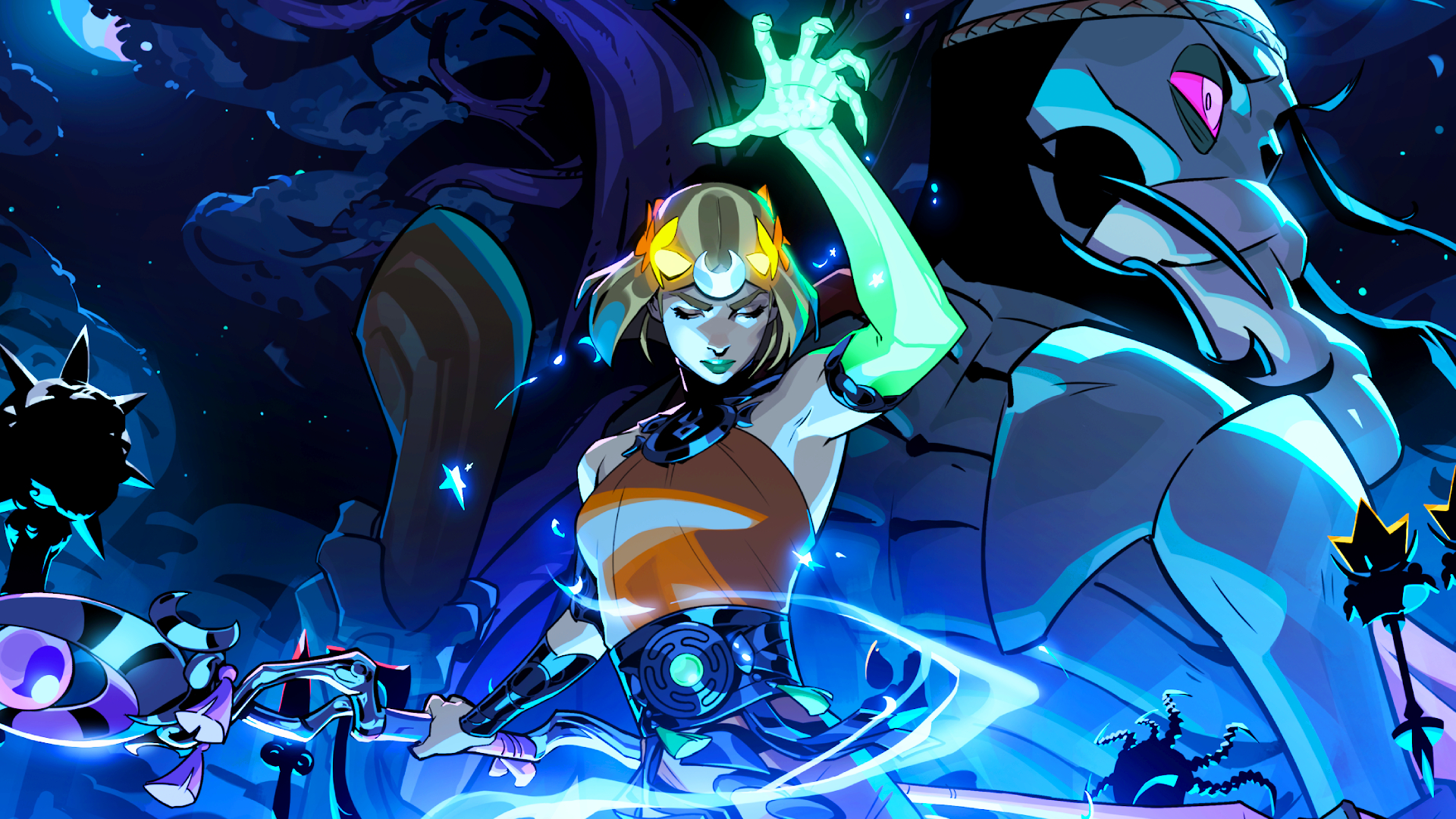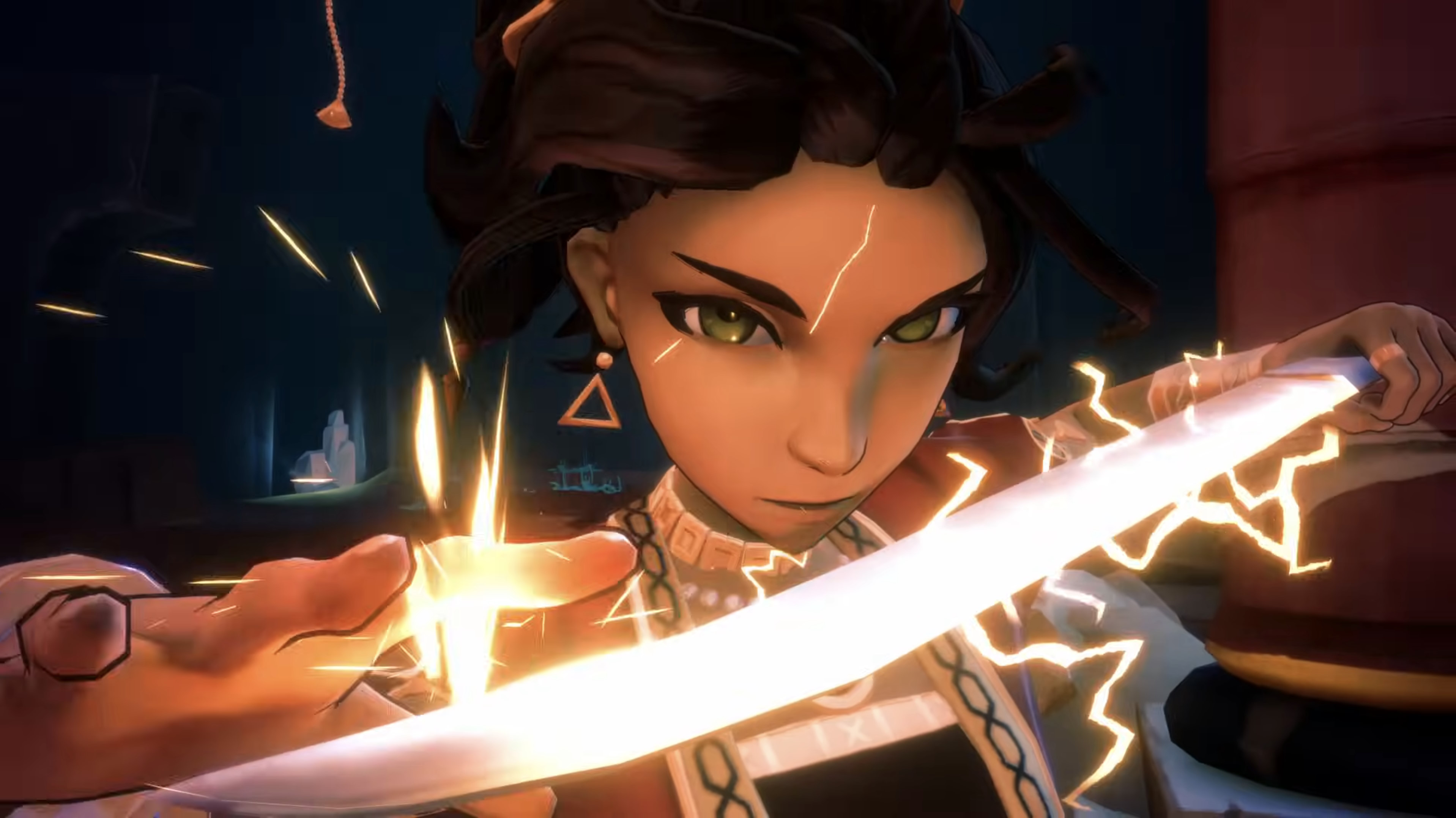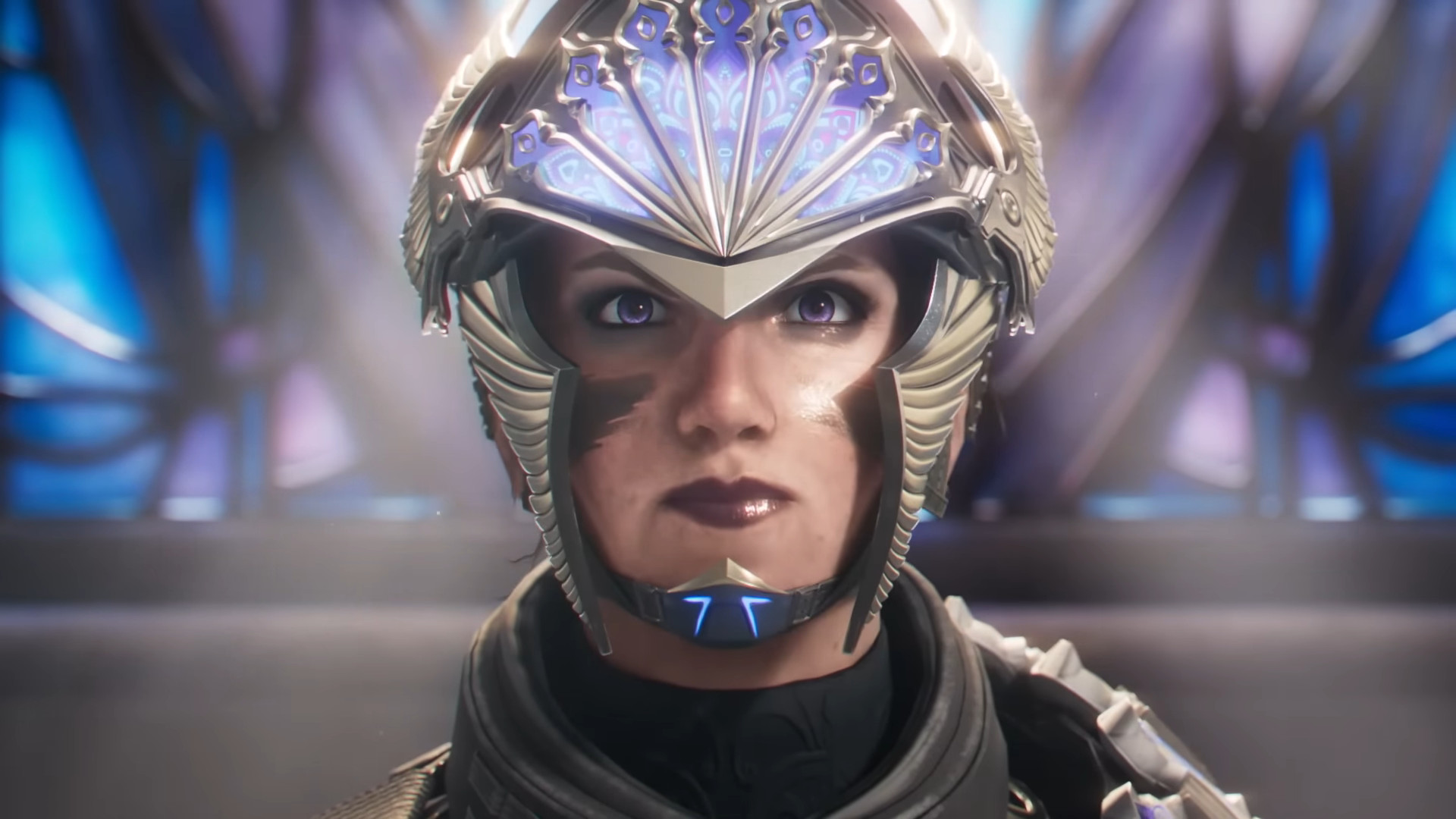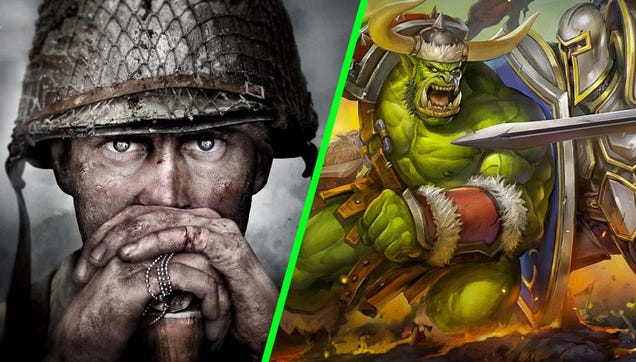
This PS5 port is a blast in the heat of battle, but feels trapped between two genres.
What is it? A roguelike third-person shooter with a strong bullet hell lineage.
Expect to pay: £50 / $60
Developer: Housemarque
Publisher: PlayStation PC
Reviewed on: 64-bit Windows 10, Nvidia GeForce RTX 3080, AMD Ryzen 9 5900X, 32GB RAM
Multiplayer: Co-op only
Link: Steam page
In 1996, Housemarque released Super Stardust, and for two decades it honed the top down arcade shooter. In 2017, it declared “ARCADE IS DEAD”—there was no money left in it, and the developer would be “moving on to new genres”. Returnal is the result, a big budget roguelike that kicks off a new era for the studio. The twist? It’s… basically an arcade shooter.
Okay, that’s a little unfair. Strictly speaking, it’s a third-person roguelike shooter—the camera tight over your shoulder, not high above, with runs progressing you through a shifting alien world, rather than being an opportunity to chase high scores. But the more you play, the more it feels like a wolf in sheep’s clothing, using some of the trappings of a popular modern genre to smuggle in the gameplay Housemarque is more known for. It’s a game with one foot in the studio’s past and another in its future—and, despite the game’s strengths, that’s not always a comfortable position to stand in.
(Image credit: Housemarque)
Things kick off with an astronaut—Selene—crash-landing on the alien planet of Atropos. After some fraught encounters with the hostile wildlife, she discovers she’s trapped in a time loop—if she dies, she simply wakes up again at the crash site. And not only that, but she’s been trapped for a lot longer than she remembers, a fact chillingly proved by the frequent discoveries of her own past corpses, complete with audio logs full of the crazed ramblings of her past lives. It’s a perfect narrative set-up for a roguelike, contextualising your repeated runs through Atropos’ dangerous levels as part of a continuous story—similar to Deathloop or particularly Hades.
Each run consists of a series of rooms—some containing loot, secrets and traps, but most bursting with furious enemies. Combat is fast, frantic and deadly, a furious, leaping dance of aliens and projectiles. Survival means always being on the move, sprinting and dashing as you get your shots in while you can, and avoiding getting hit at all costs so you can maintain your vital Adrenaline—a stacking buff that vanishes if you lose any health.
It’s exhilarating stuff, chaotic enough to always keep your blood pumping, but precise enough to demand mastery. And more than just showing Housemarque’s strengths as a studio with a long history of skill-based games, it specifically evokes arcade shooters. Projectiles are big and slow-moving, but frequently fill the screen—it very much feels like a third-person take on bullet hell as you weave between shots. Alt-fire modes on your guns feel like arcade power-ups, launching waves of shots or blazing beams.
Even the visuals evoke a meeting of two worlds. The alien landscape is beautifully bleak and weird, a foreboding realm whose techno-organic creatures and machines take clear inspiration from the Alien films and the art of HR Giger. But against that quiet, creepy backdrop, combat is an explosion of noise and light, a barrage of neon bullets and blasts straight out of Super Stardust. Even two years on from Returnal’s original launch on PS5, the combination is visually stunning, and, importantly, runs smooth as butter. No matter how busy things got on screen—and trust me, they got extremely busy—I was always hitting a consistent 60FPS even at max settings. Just what you want for a game this focused on fast, precise action.
(Image credit: Housemarque)
Elsewhere, unfortunately, the game struggles to find a similar balance. Despite the roguelike structure, there’s a clear reluctance to let the RPG elements traditional for the genre have too much effect on the very skill-based combat. There’s almost no persistent progression, and even within a run, boons that you earn frequently feel minor. Combined with the long length of runs, the result is that it’s very possible to die after 40 minutes of play having made no progress at all in your overall goal. It often feels like the best strategy is to simply rush to your goal as fast as possible, rather than taking time to explore and search for loot.
Runs are full of risk/reward decisions—should you open this chest, knowing it might give you a debuff? Should you enter this challenge room, attempting a tough fight for extra rewards? Should you brave that dangerous trap to get the health pick-up inside? The problem is, because of that focus on skill over RPG progression, the rewards are usually meagre, and the risk is often too harsh. Combat is so difficult and punishing that the wrong debuff or too much damage taken ahead of an encounter can easily tank a run no matter how far in you are. It’s simply not worth rolling the dice on that for the sake of a slight increase to your health (in a game that demands you simply never get hit anyway), one of many incrementally better guns, or one of the artifact buffs that, due to their specificity, I found often never came into play at all.
(Image credit: Housemarque)
It’s particularly grating once you reach one of the game’s bosses. Each one is a glorious bullet hell fever dream, and beating them necessitates learning their attacks and practicing the appropriate dodges and counters, often with lots of trial and error. During an attempt it’s a blast, but the roguelike structure means it can take hours between each go, as you fight your way to their room, try to keep yourself at high enough health to have a chance, stock up on consumables you’ll need, search for a decent weapon… After all that, you could still die in a few hits, and be right back at square one.
I have to stress—in the moment, when you’re bouncing between platforms, blasting aliens and dashing through their attacks, it looks and feels excellent. It’s some of the best and most engaging action you’ll find on PC. But it feels like that need to present it as something other than a pure test of twitch reflexes has led to it being housed in totally the wrong structure. There’s a real sense that, though the developer perfectly understands how to stage a fight, it really doesn’t get what makes people love roguelikes—and certainly never figured out how to make that gel with what people love about arcade shooters.
(Image credit: Housemarque)
The result is a game that, though frequently fun and hugely satisfying to conquer, also demands far more patience than is really fair to ask. Even the story, despite that promising start and some wonderfully thick horror atmosphere, ends up being a frustratingly vague tapestry that feels more aimed at the creators of 20 minute YouTube explainers than the average player. A certain breed of dedicated gaming masochist will revel in Returnal’s lengthy and unwavering challenge, but I suspect most will either wish there was more meaningful RPG progression, or that it was simply a series of score-attack levels without all that roguelike padding in between.
The irony is that the game’s post-release DLC, bundled in free with the PC port, offers a glimpse at what could have been. The Tower of Sisyphus is an endless survival challenge that simply warps you from room to room for brief but frantic fights. Rewards come thick and fast, a high score system gives you a new reason to hone your skills, and runs are quick and satisfying. It gets right to the meat of what the game is good at, and I found myself wishing it had been the template for the whole game, instead of just a sideshow.
(Image credit: Housemarque)
For better and worse, this is a game defined by Housemarque’s struggle with its own identity. On the one hand, it’s a frenzied shooter that brings to bear decades of arcade experience into a supremely satisfying and frequently beautiful experience. On the other, it’s a half-hearted grab at a more popular genre that fails to understand what makes its fellow roguelikes work so well. If this truly is a new era for Housemarque, I can only hope its next project has a clearer vision of that future.



